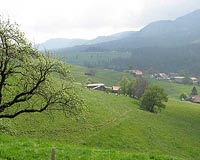 |
Silivri, Turkey (AFP) Dec 16, 2010 Some 200 Turkish soldiers, among them senior commanders, went on trial Thursday in a landmark case over an alleged 2003 plot to oust the Islamist-rooted government. The case marks the toughest challenge yet to the once-omnipotent Turkish army, which has unseated four governments since 1960 but has seen its clout wane under the ruling Justice and Development Party (AKP). The trial started in a huge courtroom inside a prison complex in Silivri town, near Istanbul, with procedural proceedings set to take up the first hearing of what is expected to be a lengthy process. Among the top suspects present were the alleged mastermind of the coup plan, retired general Cetin Dogan, as well as the former chiefs of the navy and the air force, Ozden Ornek and Ibrahim Firtina. All free pending trial, the 196 defendants -- among them serving generals and admirals -- risk 15 to 20 years in jail for "attempting to overthrow the government or prevent it from carrying out its duties through the use of force and violence." Speaking outside the courtroom, Dogan said the case had "no legitimate base," dismissing incriminating papers as "clumsy" fabrication. "Sooner or later, justice will prevail... But the longer this takes, the worse will be the consequences for the fabricators," he said. The case has been marred by serious doubts over the authenticity of some documents prosecutors rely on, fuelling tensions and mistrust between the staunchly secularist army and the government, the offshoot of a banned Islamist movement. For supporters, the probe is a long-due push to force the generals out of politics, while critics see it as a set-up to disable the army and remove a major stumbling block for the AKP's Islamist ambitions. Press coverage of the trial underscored the rift Thursday. The Taraf daily, the first to report the coup plan in January, hailed it as "the trial of the century," while the mass-selling Hurriyet questioned its credibility, listing defendants who were not even based in Turkey when the coup was allegedly debated. The prosecution argues the plan -- codenamed "Operation Sledgehammer" -- was drawn up and discussed at the First Army base in Istanbul shortly after the AKP came to power in November 2002 amid fears it would undermine Turkey's secular system. It says the suspects planned to "pave the way for a military takeover by plunging the country into chaos" and singles out Dogan, the First Army's then commander, as the mastermind. The soldiers allegedly plotted to bomb two Istanbul mosques, and down a Turkish jet over the Aegean and blame it on Greece, hoping to discredit the AKP and garner public support for a coup. Dogan argues that papers from a seminar on a contingency plan based on a worst-case scenario of tensions with Greece, followed by Islamist unrest at home, have been doctored to look like a coup plan. Prosecutors say the seminar -- held in March 2003 -- was a "coup rehearsal." The probe began in February after Taraf published purported documents incriminating the defendants and then handed them over to prosecutors. The daily, which routinely targets the army, said an anonymous source had brought the documents -- papers, CDs and audio tapes -- in a suitcase. The tapes reportedly reveal that soldiers at the seminar spoke of a growing Islamist threat, martial law and a new government, issues not supposed to be on their agenda. But critics have highlighted a series of anachronistic expressions in some papers, arguing that some evidence appears to be outright fabrication. They have pointed especially to a list of entities the coup plotters planned to control which features associations and hospitals that either did not exist or had different names in 2003. Dozens of suspects, among them soldiers, academics and journalists, are already on trial as part of a separate probe into a purported secularist network accused of having planned bombings and assassinations to destabilise the AKP and prompt a military coup.
Share This Article With Planet Earth
Related Links Democracy in the 21st century at TerraDaily.com
 From Berlin, Swiss expats fight government
From Berlin, Swiss expats fight governmentBerlin (UPI) Dec 10, 2010 With a thud, the home-made potato patty hits the facade of a Swiss-run bar in Berlin's Kreuzberg district, crumbles and drops to the pavement. Called "roeschti," the potato patty is one of Switzerland's most beloved dishes. Yet in the Helvetia Roeschti Bar in the multicultural Kreuzberg district, Swiss expatriates hurl it away in a playful expression of their contempt with politics in c ... read more |
|
| The content herein, unless otherwise known to be public domain, are Copyright 1995-2010 - SpaceDaily. AFP and UPI Wire Stories are copyright Agence France-Presse and United Press International. ESA Portal Reports are copyright European Space Agency. All NASA sourced material is public domain. Additional copyrights may apply in whole or part to other bona fide parties. Advertising does not imply endorsement,agreement or approval of any opinions, statements or information provided by SpaceDaily on any Web page published or hosted by SpaceDaily. Privacy Statement |